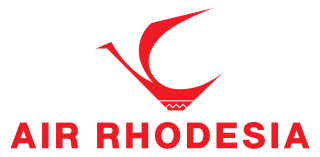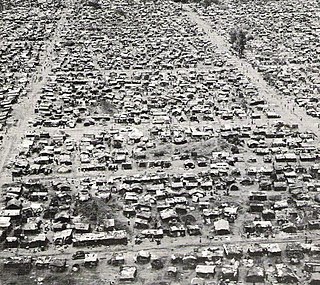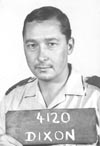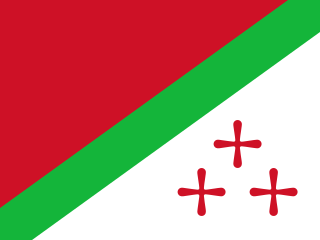
Robert Denard was a French mercenary. He served as the de facto military leader of the Comoros twice with him first serving from 13 May 1978 to 15 December 1989 and again briefly from the 28th of September to the 5th of October in 1995. Sometimes known under the aliases Gilbert Bourgeaud and Saïd Mustapha Mhadjou, he was known for having performed various jobs in support of Françafrique—France's sphere of influence in its former colonies in Africa—for Jacques Foccart, co-ordinator of President Charles de Gaulle's African policy.

Moïse Kapenda Tshombe was a Congolese businessman and politician. He served as the president of the secessionist State of Katanga from 1960 to 1963 and as prime minister of the Democratic Republic of the Congo from 1964 to 1965.

Thomas Michael "Mad Mike" Hoare was a British military officer and mercenary who fought during the Simba rebellion and was involved in carrying out the 1981 Seychelles coup d'état attempt.

Sir Roland "Roy" Welensky was a Northern Rhodesian politician and the second and last Prime Minister of the Federation of Rhodesia and Nyasaland.

Air Rhodesia was the national airline of Rhodesia. Its head office was located on the property of Salisbury Airport in Salisbury.

The Congo Crisis was a period of political upheaval and conflict between 1960 and 1965 in the Republic of the Congo. The crisis began almost immediately after the Congo became independent from Belgium and ended, unofficially, with the entire country under the rule of Joseph-Désiré Mobutu. Constituting a series of civil wars, the Congo Crisis was also a proxy conflict in the Cold War, in which the Soviet Union and the United States supported opposing factions. Around 100,000 people are believed to have been killed during the crisis.

Squadron Leader Christopher John Taylor Dixon D.C.D., also known by his callsign of Green Leader, was a Rhodesian military pilot for the Rhodesian Air Force and was born in Shabani, Southern Rhodesia. He was best known for leading the Rhodesian Operation Gatling bombing raid over Zambia, which later became known as the "Green Leader Raid".
Jean "Black Jack" Schramme was a Belgian mercenary and planter. He managed a vast estate in the Democratic Republic of the Congo until 1967.

The Rhodesian Air Force (RhAF) was an air force based in Salisbury which represented several entities under various names between 1935 and 1980: originally serving the British self-governing colony of Southern Rhodesia, it was the air arm of the Federation of Rhodesia and Nyasaland between 1953 and 31 December 1963; of Southern Rhodesia once again from 1 January 1964; and of the unrecognised nation of Rhodesia following its Unilateral Declaration of Independence from Britain on 11 November 1965.

The State of Katanga, also known as the Republic of Katanga, was a breakaway state that proclaimed its independence from Congo-Léopoldville on 11 July 1960 under Moise Tshombe, leader of the local Confédération des associations tribales du Katanga (CONAKAT) political party. The new Katangese state did not enjoy full support throughout the province and was constantly plagued by ethnic strife in its northernmost region. It was dissolved in 1963 following an invasion by United Nations Operation in the Congo (ONUC) forces, and reintegrated with the rest of the country as Katanga Province.
Air Trans Africa was formed by Jack Malloch in 1964 after his first company, Rhodesian Air Services failed in 1962. It operated a Super Constellation, a Douglas C-54 and a DH114 Heron aircraft. The airline's financial crises were compounded when the government of Southern Rhodesia, under Ian Smith, unilaterally declared independence on November 11, 1965.

Rhodesian Air Services (RAS) was an airline from Southern Rhodesia (today's Zimbabwe, until 1963 part of the Federation of Rhodesia and Nyasaland) from 1960 to 1965. Formed by Jack Malloch and headquartered in Salisbury, it operated scheduled and chartered passenger flights on regional routes.

The Rhodesian Security Forces were the military forces of the Rhodesian government. The Rhodesian Security Forces consisted of a ground force, the Rhodesian Air Force, the British South Africa Police, and various personnel affiliated to the Rhodesian Ministry of Internal Affairs. Despite the impact of economic and diplomatic sanctions, Rhodesia was able to develop and maintain a potent and professional military capability.

Ioannis Agorastos "John" Plagis, DSO, DFC & Bar (1919–1974) was a Southern Rhodesian flying ace in the Royal Air Force (RAF) during the Second World War, noted especially for his part in the defence of Malta during 1942. The son of Greek immigrants, he was accepted by recruiters only after Greece joined the Allies in late 1940. Following spells with No. 65 Squadron and No. 266 (Rhodesia) Squadron, he joined No. 249 Squadron in Malta in March 1942. Flying Spitfire Mk Vs, Plagis was part of the multinational group of Allied pilots that successfully defended the strategically important island against numerically superior Axis forces over the next few months. Flying with No. 185 Squadron from early June, he was withdrawn to England in early July 1942.

The Katangese Air Force or Katangese Military Aviation was a short lived air force of the State of Katanga, established in 1960 under the command of Jan Zumbach. The force consisted predominantly of Belgian, French, and British mercenary pilots, operating a small number of helicopters and smaller number of fixed wing planes, including three attack aircraft delivered by the CIA.

Operation Grandslam was an offensive undertaken by United Nations peacekeeping forces from 28 December 1962 to 15 January 1963 against the forces of the State of Katanga, a secessionist state rebelling against the Republic of the Congo in Central Africa. The Katangese forces were decisively defeated and Katanga was forcibly reintegrated into the Congo.

The Katangese Gendarmerie, officially the Katangese Armed Forces, was the paramilitary force of the unrecognized State of Katanga in Central Africa from 1960 to 1963. The forces were formed upon the secession of Katanga from the Republic of the Congo with help from Belgian soldiers and former officers of the Force Publique. Belgian troops also provided much of the early training for the Gendarmerie, which was mainly composed of Katangese but largely led by Belgians and later European mercenaries.

Captain Pierre François Laureys was a French military officer, arms dealer and printer.

Operation Unokat, also styled Operation UNOKAT, was an offensive undertaken by United Nations peacekeeping forces from 5 to 21 December 1961 against the gendarmerie of the State of Katanga, a secessionist state rebelling against the Republic of the Congo in Central Africa. The United Nations had tried several times to reconcile the government of the Congo with the State of Katanga, which had declared independence under Moïse Tshombe with Belgian support in 1960.

The 5 Commando was a mercenary unit of the Congolese National Army formed in response to the Simba rebellion. They were trained to be commandos, and had their own air support unit. 5 Commando was active from 1964 to 1967.



















